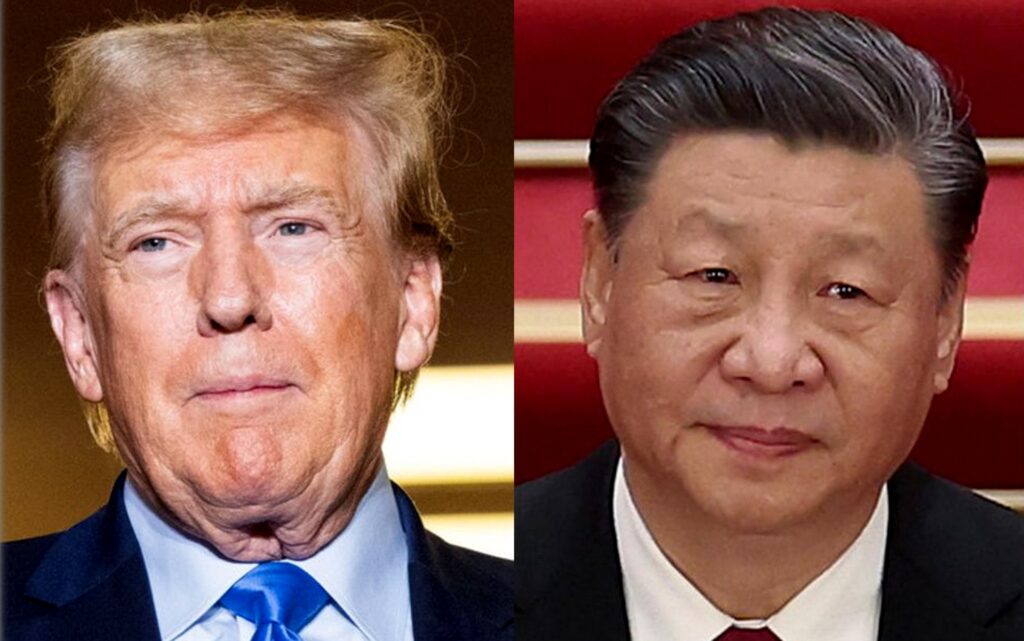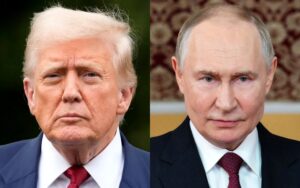Trump hints at renewed trade tensions with China

US President Donald Trump on Friday pointed to renewed trade tensions with China, which he accused of violating an agreement aimed at de-escalating tariffs, saying he expected to speak soon with Chinese President Xi Jinping.
Trump’s position came in a post on his Truth Social, hours after Treasury Secretary Scott Besant said in an interview with Fox News that trade talks with Beijing were “a little bit stuck”.
The world’s two largest economies agreed in May to suspend significant tariff increases between them for 90 days, following talks between senior officials in Geneva.
But Trump wrote on Friday that “China, which may not surprise some, has completely violated its agreement with us,” without providing further details.
The Wall Street Journal reported Friday that the new dispute emerged as China’s slowdown in approving export licenses for rare earths and other components needed for automobiles and chips has fueled American frustration.
The WSJ report, citing informed sources, added that the key to a tariff reduction agreement is the demand that China resume its exports of rare earths.
In response to a question about Trump’s post on CNBC, US Trade Representative Jamieson Greer criticized Beijing for continuing to slow down and disrupt the export of commodities like essential metals.
He added that the US trade deficit with China remains enormous, and that Washington doesn’t see any significant change in Beijing’s behavior.
Trump’s deputy chief of staff, Stephen Miller, told reporters that China’s failure to meet its commitments opens the door to all forms of action by the United States to ensure future compliance.
The US Treasury Secretary said on Thursday that Trump and his Chinese counterpart, Xi Jinping, may hold a phone call about the matter.
“I’m sure I’ll be speaking to President Xi, and hopefully we can work this out,” Trump told reporters Friday afternoon.
Greer told CNBC that Washington is also holding intensive discussions with other major trading partners, noting that he will hold meetings next week with his counterparts from Malaysia, Vietnam, and the European Union.
These meetings come as Greer heads to Europe to participate in OECD talks.
“Negotiations are on track, and we hope to reach some agreements within the next two weeks,” Greer added.
Since returning to the White House in January, Trump has imposed sweeping tariffs on most US trading partners, with particularly high tariffs on Chinese imports.
Tariff decisions by both sides continued, exceeding 100%, before tensions were defused earlier this month when Washington agreed to temporarily reduce its additional tariffs on China from 145% to 30%.
For its part, China reduced its additional tariffs from 125% to 10%.
US tariffs remain higher, including a 20% increase recently imposed by the Trump administration on Chinese goods over China’s alleged involvement in illegal drug trafficking, a claim Beijing has rejected.
The high tariff levels, while in effect, significantly halted trade between the two countries, with companies halting shipments while waiting for the two governments to reach an agreement to reduce the tariffs.
On this regard, a commercial court ruled this week that the president exceeded his authority by using emergency economic powers to justify the imposition of sweeping tariffs.
The court blocked the imposition of the largest tariffs since Trump returned to the White House, although the ruling was temporarily suspended pending appeals.
But the ruling upheld tariffs imposed by the Trump administration on imports from specific sectors, such as steel and automobiles.







